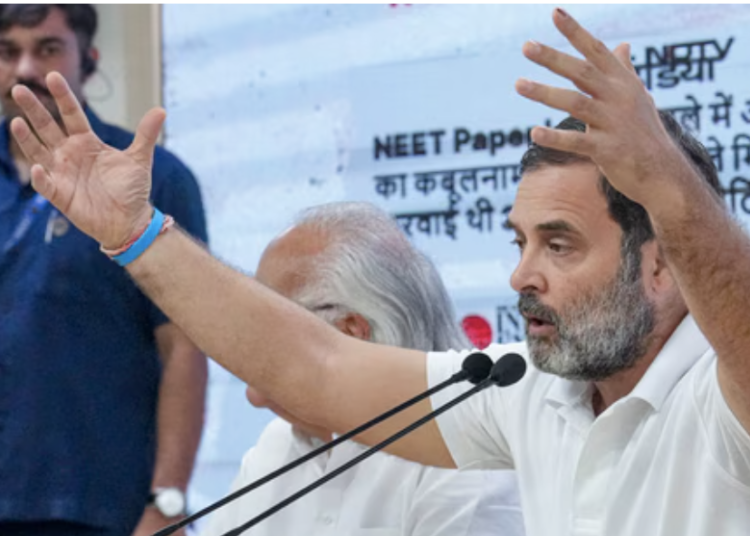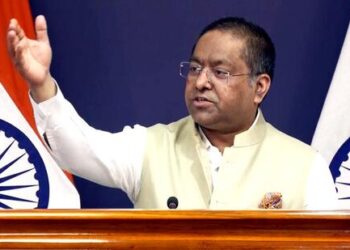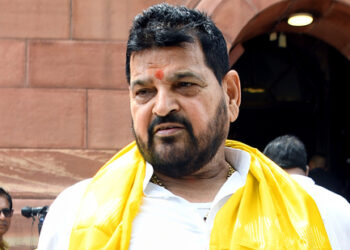Rahul Gandhi, senior leader of the Congress party, has stirred controversy with his remarks on Prime Minister Narendra Modi’s psychological state and physical attributes amid the heated debate over the National Eligibility cum Entrance Test for Undergraduates (NEET-UG).
During a press conference addressing the NEET-UG row, Rahul Gandhi commented, “PM Modi has psychologically collapsed. His chest is now 30-32 inches.” The statement drew immediate attention and criticism from political opponents, who accused Gandhi of personalizing the issue rather than focusing on substantive policy matters.
The NEET-UG examination has been a subject of intense scrutiny and debate, with allegations of irregularities and favouritism in BJP-ruled states triggering widespread protests and calls for reforms. Rahul Gandhi’s remarks added a new dimension to the discourse, prompting reactions from across the political spectrum.
In response to the controversy, BJP leaders condemned Gandhi’s comments as unbecoming of a senior politician and urged him to focus on constructive criticism rather than personal attacks. They reiterated the government’s commitment to ensuring transparency and fairness in competitive examinations like NEET-UG.
Meanwhile, supporters of Rahul Gandhi defended his remarks, arguing that they were intended to highlight the perceived failures in governance and empathy towards students affected by the NEET-UG controversy. They emphasized the need for systemic reforms to address issues of access and equity in education.
The incident has reignited debates on the appropriate use of language and decorum in political discourse, especially during times of heightened public sensitivity. Critics have called for restraint and civility in political communication, urging leaders to prioritize substantive issues over personal attacks.
As the NEET-UG row continues to unfold, stakeholders await further developments in policy responses and public discourse surrounding competitive examinations and educational reforms in India.








 India
India












